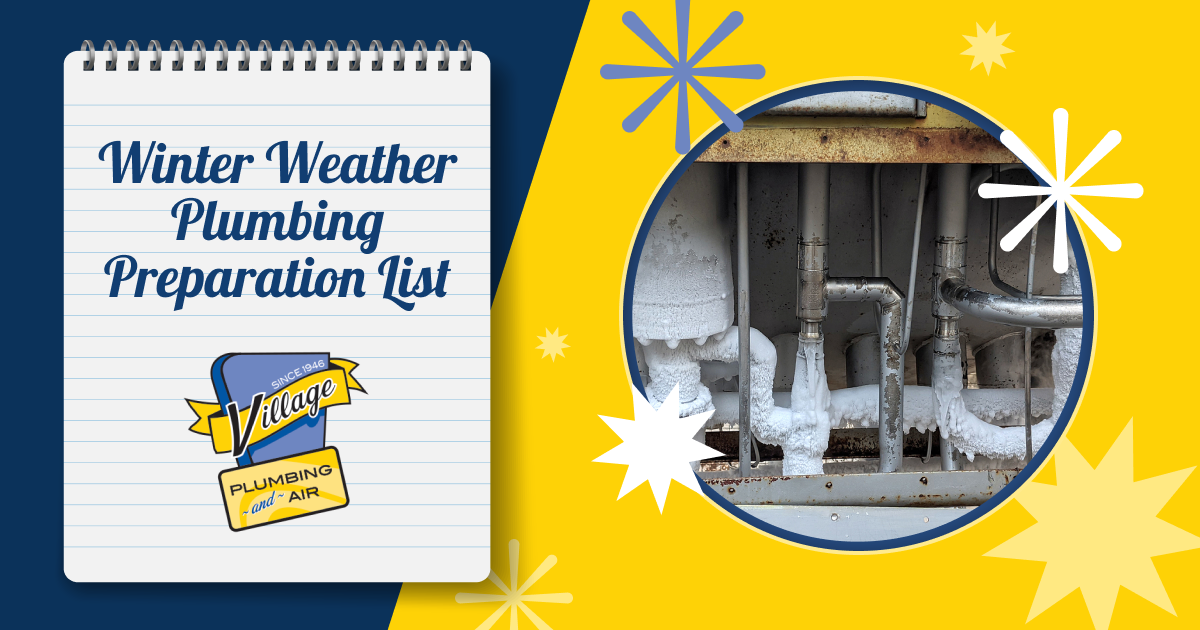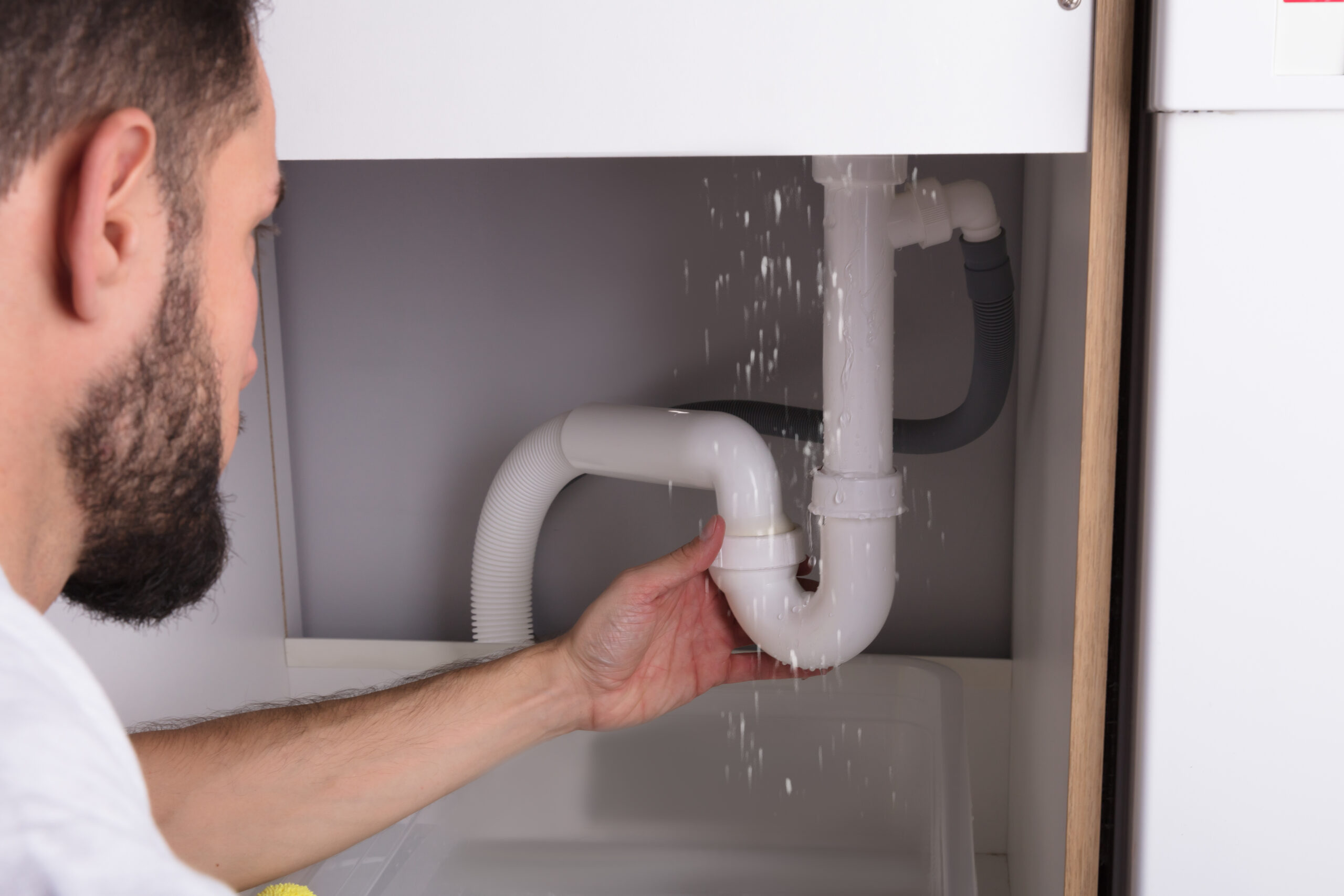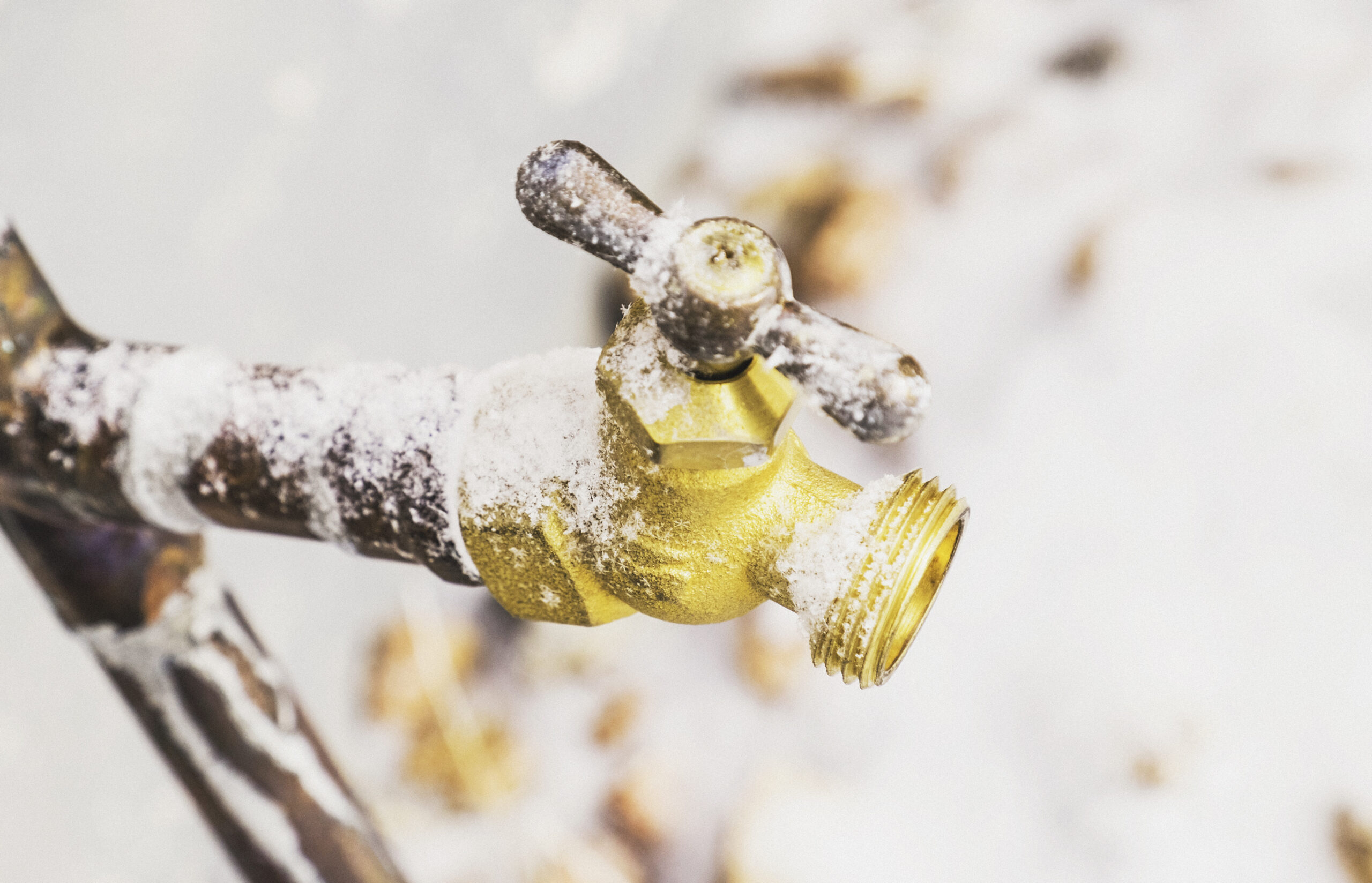It’s never too soon to prepare your plumbing for wintry weather. If you haven’t yet taken steps to protect your home plumbing system, acting now can save you from stress and expensive repairs later. Once the temperatures drop below freezing, it may be too late. But here is a list of steps you can take to avoid problems this winter.
Get Your Pipes Ready for Winter
Use our tips below as a checklist to create a buffer for your plumbing system against freezing temperatures. Doing so can mean the difference between dealing with frozen and burst pipes or having a home free of wintertime plumbing emergencies.
Turn Off Outdoor Hoses
When you remove water from hoses, there won’t be any that can freeze. Otherwise, ice can form in the hose and back up into pipes in your home. First, turn off the shutoff valve to outdoor pipes. Open the bleed cap at a faucet so that any water trapped in the system can drain. Then disconnect all hoses and place them indoors for storage.
Cover Up Hose Bibs
Insulated covers are available and affordable. By slowing heat loss, they can keep a pipe warmer to prevent freezing where the pipe passes through the wall.
Insulate Fixtures
If you have faucets, spigots, and other fixtures exposed to the elements, install faucet covers, pipe wrap tape, and foam pipe covers to insulate them. These are easily found at hardware stores. Check for plumbing in basements, attics, and crawlspaces, which are traditionally colder, and protect any exposed components there. If necessary, you can protect plumbing at the last minute with towels, newspapers, rags, or old clothes, using duct tape to wrap these around pipes.
Install Heat Tape or Cable
Heat tape can be purchased at a hardware store. Similar to a heating pad, it wraps around exposed pipes and integrates a thermostat to sense pipe temperature. It will automatically turn on in the cold to prevent pipes from freezing. Although not the cheapest option, heat tape is effective and only needs an outlet to plug into.
Install or Replace Weather Sealing
The seals around your windows and doors help keep cold air out. If they start to break down, areas near windows can get cold in winter. Replacing weather sealing is easy; it can protect your plumbing and keep utility costs down as your heater can work more efficiently.
Install Frost-Free Sill Cocks
These outdoor faucets are placed inside a wall. Instead of being connected to the spigot directly, frost-free sill cocks are contained in a warmer location and not exposed to the brunt of the cold. Water automatically drains through them and not areas prone to ice formation.
Seal Rim Joists
Rim joists provide a space for cold air to seep through. Since cold is the primary ingredient for frozen pipes, you can protect them by sealing cracks and holes in rim joists with expandable foam and insulation. Also, insulate and seal spaces where pipes, wires, and cables pass through exterior walls.
Install Garage Insulation
Water lines that run through the garage are vulnerable to freezing. To avoid trouble, keep your garage warm by insulating the garage door and, if possible, the entire space. You can also use space heaters during major winter storms for added protection.
Turn the Water Off Before Leaving Town
Turn off the primary shutoff valve if you plan to be away for a few days. Otherwise, a pipe can freeze or crack, and no one will be around to address the torrent of water that follows. When you turn off the pipe, also turn off automatic icemakers and other devices that can burn out or otherwise be damaged.
When the Weather Drops Below Freezing
Open Cabinet Doors
On the coldest days, open the doors to cabinets where there are exposed pipes. You’ll often find these in the kitchen, bathroom, or laundry room. With doors open, warmer air can circulate and prevent pipes from freezing.
Allow Faucets to Drip
Normally, you don’t want faucets to drip much. But if there’s a deep freeze, letting a faucet drip slowly and steadily can manage water pressure in the system and prevent water in pipes from freezing.
Run Your Appliances at Night
You can protect your pipes during a hard freeze by running a dishwasher, washing machine, or other major appliance overnight. This will keep water moving, which makes it less likely to freeze. Start a cycle before going to bed or set the appliance on a delay so it starts during the night.
Contact Village Plumbing, Air & Electric for More Advice or to Schedule Service
We can provide even more tips and details on how to protect and maintain your plumbing system this winter, Just fill out our form to receive a free checklist! If you need assistance, our professional plumbers can help winterize your plumbing and protect your pipes and property. To schedule a visit, call (713) 526-1491 today!





